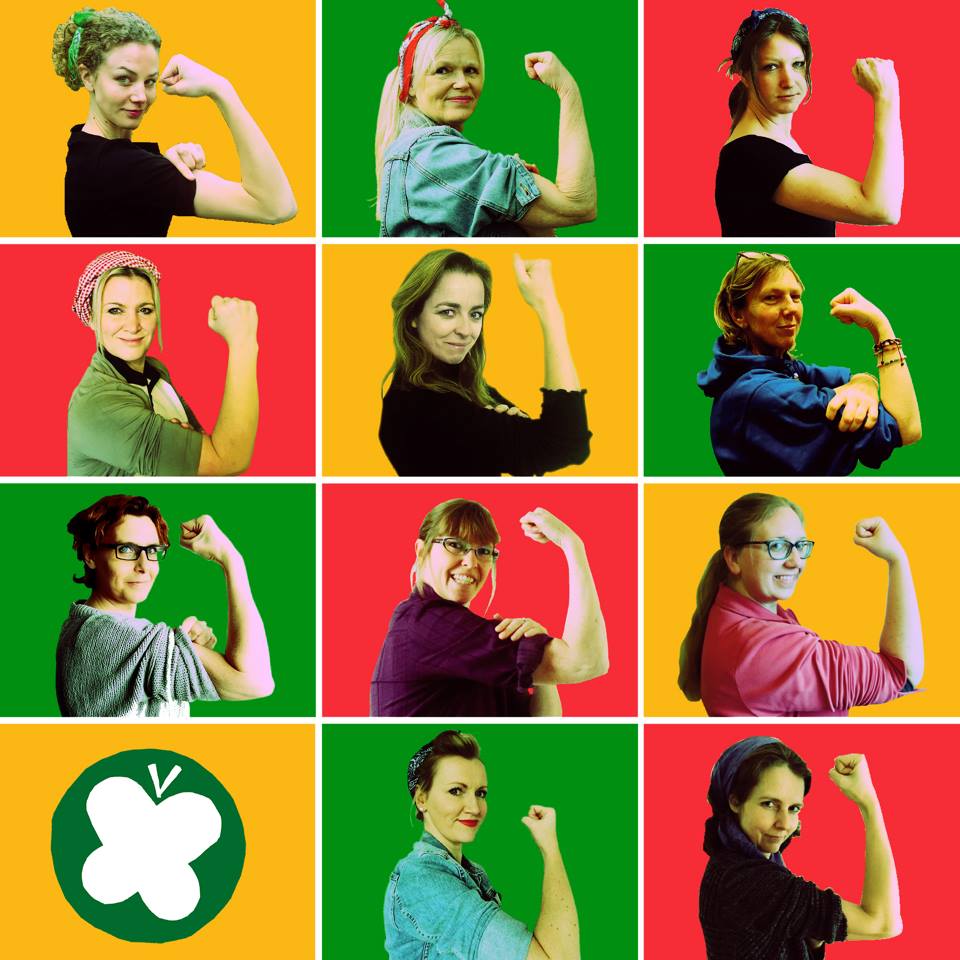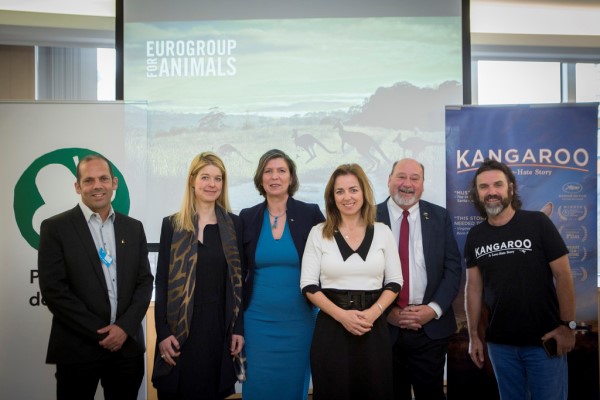Worldlog de Marianne Thieme du 13 mars 2018
La semaine dernière nous avons abordé dans le détail la Journée internationale des femmes. Les femmes (de cisgenre ou transgenre) dans le monde entier ont toujours été à l’avant-garde du combat pour les droits civils et les droits des animaux. De tous les partis politiques participants aux élections municipales du 21 mars le Parti pour les Animaux est le seul parti qui ait plus de femmes que les hommes aux listes électorales. Depuis notre fondation nous luttons, comme parti d’émancipation, contre la discrimination des groupes divers, parce que nous croyons que tous les êtres vivants méritent être traités avec respect et égalité, quel que soit, par exemple, leur genre, race, religion, préférence sexuelle et espèce. Il est inacceptable que d’autres partis politiques, médias et entreprises ne réussissent pas à attirer assez de femmes. Nous sommes, comme Parti pour les Animaux, très fiers et reconnaissants que nous pouvons travailler avec beaucoup de femmes inspirantes et intransigeantes, aussi bien aux Pays-Bas qu’au sein de notre mouvement international.

Têtes de listes féminines du Parti pour les Animaux pour les élections municipales
Il y a eu cinq ans la semaine dernière que les tests sur les animaux pour les produits cosmétiques ont été interdits dans l’Union européenne (UE). Ensemble avec, entre autres, Dr. Jane Goodall, nous nous sommes associés à l’appel à l’UE et aux responsables nationaux de miser activement sur une interdiction mondiale des expérimentations animales pour les produits cosmétiques. Dans les semaines à venir le Parlement européen ira voter sur ce point. Bien qu’il y ait assez de méthodes alternatives valables, on utilise toujours des tests sur les animaux pour le développement des produits cosmétiques dans la plupart des pays.
Bonne nouvelle du Parlement européen : une majorité a souscrit ce mois-ci un appel à la Commission européenne et les États membres de faire davantage pour protéger les abeilles. De plus le parlement a soutenu une proposition pour une interdiction totale des néonicotinoïdes, des insecticides qui sont nuisibles aux abeilles entre autres. Le Parlement européen suit ainsi les appels antérieurs nationaux et européens du Parti pour les Animaux. D’après une étude scientifique récente il y a assez d’autres solutions qui sont favorables à l’environnement et aux abeilles au lieu de ces substances toxiques. Nous espérons que les responsables de l’UE auront finalement le courage de voter définitivement pour une interdiction totale de néonicotinoïdes.

Présentation du documentaire « Kangaroo » au Parlement européen
La semaine dernière j’ai été au Parlement européen pour la première du documentaire impressionnant « Kangaroo ». La présentation a été organisée par notre groupe politique européen, en coopération avec, entre autres, notre parti frère australien Animal Justice Party (https://animaljusticeparty.org/). En 2016 j’ai donné une série de conférences en Australie et j’ai eu l’honneur de pouvoir contribuer au film. Par des images choquantes le film révèle la cruauté immense envers les animaux qui est indissociable de la chasse aux kangourous et avertit également des risques de sécurité alimentaire de la viande de kangourou. La chasse australienne aux kangourous est le massacre de mammifères la plus massive du monde. Chaque nuit des milliers de kangourous sont pourchassés et tirés dessus. Les Pays-Bas et d’autres pays européens importent relativement beaucoup de viande et de peaux de kangourous et sont ainsi en partie responsables des situations intolérables en Australie. Notre députée européenne Anja Hazekamp et moi luttons pour un embargo néerlandais et européen sur l’importation des produits de kangourous.
Le Worldlog suivant sera sans doute dominé par les résultats des élections municipales néerlandaises. Saviez-vous que non pas seulement les Néerlandais, mais aussi les citoyens de l’UE ont le droit de voter aux élections municipales, tant qu’ils sont enregistrés dans une commune néerlandaise ? C’est aussi le cas pour les citoyens non européens qui habitent aux Pays-Bas depuis au moins cinq ans. Des informations supplémentaires sont disponibles ici et profitez de votre droit de vote le 21 mars !
A bientôt,
Marianne
Last week it was International Women’s Day, a topic to which we devoted much attention. Women around the world (cisgender and transgender) have been at the forefront of the fight for civil and animal rights from the outset. Of all participating political parties in the upcoming municipal elections of 21 March, the Party for the Animals is the only party with more women than men on its candidate list. Being an emancipation party, we have fought against the discrimination of different groups since our establishment, because we believe all beings deserve to be treated equally and with respect, regardless of gender, race, religion, sexual orientation and kind. It is unacceptable that other political parties, media and companies keep failing to attract sufficient numbers of women. The Party for the Animals is extremely proud and thankful to work side by side with so many inspiring and tenacious women, in the Netherlands as well as in our international movement.

Female leaders on the Party for the Animals’ list of municipal elections candidates
Last week, it was five years ago that animal-testing for cosmetics was banned in the European Union (EU). Together with Dr Jane Goodall amongst others, the Party for the Animals joined the call for the EU and national leaders to actively engage in a global ban on animal-testing for cosmetics. In the following weeks, the European Parliament will vote on this issue. Despite sufficient acknowledged alternatives, most countries still use animal-testing for developing cosmetics.
Good news from the European Parliament: earlier this month, a majority supported an appeal to the European Commission and to the member states to step up their efforts to protect the bees. Furthermore, the Parliament supported a proposal for a total ban on neonicotinoids, insecticides that are harmful to insects such as bees, hereby following earlier national and European calls from the Party for the Animals. Recent scientific research demonstrates that there are plenty of environmentally and bee friendly alternatives for these toxic substances. We hope that on 22 March, EU leaders will finally have the courage to vote in favour of a total ban on neonicotinoids.

Screening of the documentary “Kangaroo” in the European Parliament
Last week, I watched the première of the impressive documentary “Kangaroo” in the European Parliament. The screening was organised by our European group in collaboration with our Australian sister party Animal Justice Party amongst others. In 2016, I gave a series of lectures in Australia and I was given the honour to take part in this film. Using shocking footage, the film reveals the enormous animal suffering behind kangaroo hunting and stresses the food safety risks associated with kangaroo meat. Kangaroo hunting in Australia is the most extensive slaughter of mammals in the world. Every night, thousands of kangaroos are hunted and shot. European countries such as the Netherlands import relatively high amounts of kangaroo meat and skin, which makes them jointly responsible for the atrocities in Australia. Our MEP Anja Hazekamp and I have therefore dedicated ourselves to achieve a Dutch and European import ban on kangaroo products.
The next Worldlog will undoubtedly be dominated by the outcome of the Dutch municipal elections. Did you know that not just Dutch citizens, but also EU citizens have the right to vote in the municipal elections, as long as they are registered with a Dutch municipality? The same goes for non-EU citizens who have lived in the Netherlands for an uninterrupted period of at least five years. Read more about it and use your right to vote on 21 March!
Until next time,
Marianne